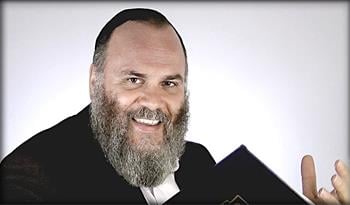Text-based study enhances Torah study skills
Developed specifically for online, in-depth learning
Taught by scholars with a personal interest in the subject
Engaging topics made relevant to real life issues
About the Course
Scroll Down is a 10-part course designed to orient viewers on the process of the Torah’s transmission and exposition through the ages. With deep insight and ample humor, Dr. Chighel leads a delightful tour among the people, places and events that have shaped the Jewish library.
Course syllabus
-
 Level: Intermediate
Level: Intermediate
-
 Category: Jewish Literacy
Category: Jewish Literacy
-
 Institution: Chabad.org
Institution: Chabad.org

Meet the Instructor
Michael Chighel (Kigel) received his Ph.D. in philosophy from the University of Toronto for his dissertation on the Book of Job, after a specialization in 20th-century French and German thought. In Canada he taught in the departments of philosophy and of Jewish studies at the universities of York, Queen’s and Waterloo. He produced Passages and Messages for eleven seasons on Canadian television (CTS). Until this year he held the Rohr Chair of Jewish Studies at the Lauder Business School in Vienna, where he taught Torah, European ethics and political economy. He has translated a number of books and published various articles in Jewish thought. Michael and his family have made aliyah, and now live in Jerusalem.



